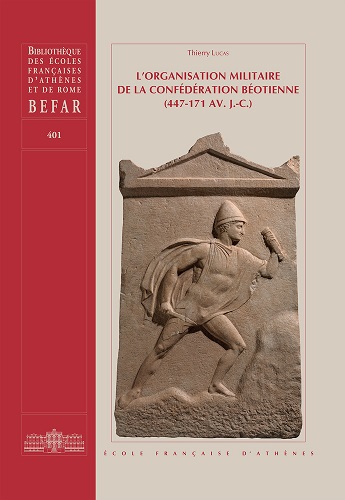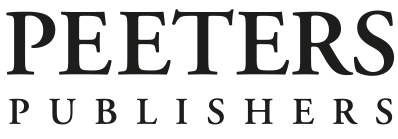
La guerre antique est bien plus qu’une affaire cantonnée au domaine militaire: c’est un fait total, à la fois politique, social, culturel, qui structure durablement les sociétés qui la font ou qui cherchent à s’en prémunir. Le livre de Thierry Lucas entend traiter de front cette question majeure à travers le cas de la Béotie aux époques classique et hellénistique, sur le temps long, au cours de cinq chapitres thématiques. L’enquête prend appui sur les récits de bataille de l’époque classique, qui donnent un aperçu du fonctionnement de l’armée béotienne au moment de la guerre du Péloponnèse et de la période d’hégémonie thébaine, et sur la riche documentation épigraphique de l’époque hellénistique. Ces données, croisées avec les apports de l’archéologie, de l’iconographie ou de la numismatique, permettent de dresser le tableau d’un système militaire qui imprégnait l’ensemble de la société béotienne, qu’il s’agisse des institutions politiques, de la religion ou encore de la culture. Même pour l’époque hellénistique, malgré le rôle en retrait de la Confédération sur la scène internationale, les sources épigraphiques nous montrent un koinon doté d’organes militaires bien rodés et pleinement fonctionnels, constamment adaptés aux évolutions des pratiques guerrières, et adossé à une culture militaire.
Cet ouvrage propose en somme, pour la première fois, une synthèse complète, inscrite dans le temps long, sur un système militaire fédéral antique. Il serait trompeur d’y voir simplement un volume de plus d’études béotiennes: bien plus qu’une analyse strictement régionale, ce travail constitue un véritable paradigme d’histoire militaire pour le monde grec.
Ancient warfare is much more than a military affair: it is a total phenomenon, at once political, social and cultural, and it has a lasting impact on the societies that wage war or seek to shelter themselves against it. Thierry Lucas’ book tackles this major issue, focusing on the case of ancient Boeotia in the Classical and Hellenistic periods through five thematic chapters. This study is based on battle narratives from the Classical period, which provide an insight into the workings of the Boeotian army at the time of the Peloponnesian War and during the period of Theban hegemony, as well as on the rich epigraphic documentation from the Hellenistic period. These data, combined with archaeological, iconographic, and numismatic evidence, draw a picture of a military system that permeates all aspects of Boeotian society, in terms of institutions, religion and culture. Even in the Hellenistic period, despite the Confederation’s wilting role on the international stage, the epigraphic evidence shows a koinon with well-honed and fully functional military institutions, constantly adapting to evolving warfare practices while keeping to a deeply rooted military culture.
In a nutshell, this book offers the first comprehensive and long-term overview of an ancient federal military system. It would be misleading to see it as just another volume on Boeotian studies: far more than a strictly regional analysis, this study is a true a paradigm of military history in the ancient Greek world.


 English
English add to cart
add to cart
